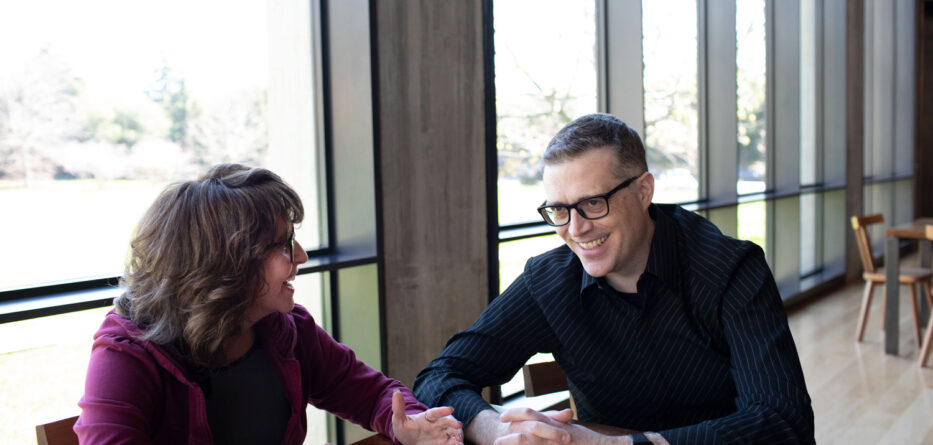Arturo Hilario
El Observador
Since its inception, the Emeryville based Pixar Animation Studios has pushed technical boundaries while always trying to keep the most important thing in focus, the story it’s trying to tell.
Looking at it by that lens, by far one of Pixar’s most important creations is a story about children’s playthings and their day to day lives. Toy Story is a very foundational part of Pixar Studios because it encapsulates the best of the studio, and every new entry into its world, whether it be one of the movies or shorts, taps into what made that first movie a critical and audience favorite while branching out into new territory.
With their newest adventure, Pixar once again steps into the world of Toy Story, sort of. With Lightyear the creative team, led by director/screenwriter Angus MacLane and producer Galyn Susman, sought to find inspiration from Toy Story and the heart and soul of that series to create a new story, one of the actual Space Ranger who inspired the eventual Buzz Lightyear action figure.
Lightyear is a Sci-fi action story which tells the story of Buzz (voiced by Chris Evans), an astronaut and test pilot who ventures into new dangerous worlds and uncharted time and space for the sake of humanity. When he is lost in time, separated from his friends and family, he must reassess what is important to him.
With the premiere of Lightyear rapidly approaching, we had a chance to speak with MacLane and Susman on how the film was made, what parts of the Buzz character and Toy Story came along for the ride, and what they hope is the take away for audiences.
Lightyear releases in theaters June 17, 2022.
To start off, I was wondering what the creative team’s consensus was on how to be respectful of the original films and character of Buzz while being able to branch out into this new story?
Galyn Susman
I think it was less about being respectful to the films and more about being respectful to Buzz with the Buzz character. And we’ve been working with Buzz forever. I’ve been working on Toy Story related stuff since the first Toy Story so I feel like we really know this character and we don’t want to do anything that’s going to reflect badly on the character or the franchise in any way. Surely that creates some amount of limitations, right?
We needed to start out with Buzz being likable, even though this type of movie, they usually start out being not so likable. So there were those kinds of limitations, but other than that, we had pretty free rein to create a whole new universe and a whole new set of rules.
I was wondering what the experience was like for you, Angus, in terms of this being your first full length director role?
Angus MacLane
Well, I think it was really helpful that I’d done some of the other films as a co-director and directed the shorts because it’s really fairly challenging to make a movie here – to make a movie anywhere, really. But the amount of different problems that you’re presented with in the film at any one time are pretty enormous.
But one nice thing about having done those of the movies is that this one, you can kind of know what to focus on, and then that allows you to get really high-quality level on screen because you’re focused on the right things, and we had a great team that communicated really well with each other.
And so it’s mostly about who you’re surrounding yourself with to allow yourself to be successful and being here that long enough, you kind of know what to look for, so that’s an advantage of having been around. Thank you.
Now could you talk about what story you wanted to tell with Lightyear?
MacLane
The story I wanted to tell was about a character who’s obsessed with work so that he keeps going forward in the future and separating himself from his family and then doesn’t realize until it’s too late that he’s separated from everybody, and then being given a second chance, what choices are you going to make.
So with a greater good sense of responsibility towards society, he ultimately makes a sacrifice for the personal, all under the idea of the ‘noble pursuit’. So it’s based around this idea that I observed about how as filmmakers, we make these movies and we end up kind of jumping through time, we finish a movie and it’s taken so long that the outside world has changed a bit and so has done this part of that.
And I think that for me, there was a real thing I really related to, and I wondered what that might be like. Maybe I wondered it was not very universal. But then with all the lockdowns and covid, there was actually a very similar feeling to coming back out after the lockdowns had subsided.
So there’s just this recognition of trying to be in the moment and experience the moment and wanting to connect people.
Thank you, guys. Finally, what do you both hope that the film accomplishes and what people take away from Lightyear?
MacLane
The feeling I wanted the audience to have at the end of it is, “that was awesome.” Literally, I just want people to have a good time because that’s what movies gave me and inspired my creativity when I was a kid. And I hope that people see the movie and really have a good time.
It sounds kind of trite, but it’s really always been the goal just because movies are intended to entertain and inspire and hopefully this movie does that for the moviegoing audience. I like it, I think it’s hilarious.
Susman
I agree. It’s always been our intent to give the audience is something that they can really enjoy. And I think in terms of the theme of the film, I hope that when people finish and they have enjoyed it, they realize that they’ve enjoyed it because they’ve surrendered themselves to that moment, in that place, in that time, and that’s really what it’s all about. It’s being present in the current moment.






